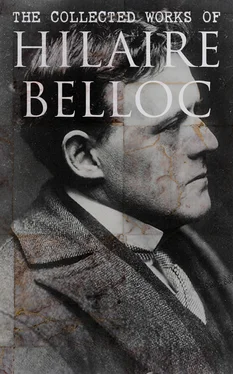The full practice of democracy, therefore, says Rousseau, is better suited to angels than to men.
As to the practical argument that men are not sufficiently conscious of the State to practise democracy, save in small communities, that plea also is recognised and stated better than any one else has stated it. For there is not in this book an apology for democracy as a method of government, but a statement of why and how democracy is right.
The silly confusion which regards a representative method as essentially democratic has never been more contemptuously dealt with, nor more thoroughly, than in the few words in which the Contrat Social dismisses it for ever; though it was left to our own time to discover, in the school of unpleasant experience, how right was Rousseau in this particular condemnation.
Exiguous as are the limits within which the great writer has finally decided the theory of democracy, he finds space for side issues which nowhere else but in this book had been orderly considered, and which, when once one has heard them mentioned, one sees to be of the most excellent wisdom: that the fundamental laws, or original and particular bonds, of a new democracy must come from a source external to itself; that to the nature of the people for whom one is legislating, however democratic the form of the State, we must conform the particulars of law; that a democracy cannot live without "tribunes"; that no utterly inflexible law can be permitted in the State—and hence the necessity for dictatorship in exceptional times; that no code can foresee future details—and so forth.
It would be a legitimate and entertaining task to challenge any man who had not read the Contrat Social (and this would include most academic writers upon the treatise) to challenge any such one, I say, to put down an argument against democratic theory which could not be found within those few pages, or to suggest a limitation of it which Rousseau had not touched on.
If proof were needed of what particular merits this pamphlet displayed, it would be sufficient to point out that in a time when the problem represented by religion was least comprehended, when the practice of religion was at its lowest, and when the meaning, almost, of religion had left men's minds, Rousseau was capable of writing his final chapter.
That the great religious revival of the nineteenth century should have proved Rousseau's view of religion in the State to be insufficient is in no way remarkable, for when Rousseau wrote, that revival was undreamt of; what is remarkable is that he should have allowed as he did for the religious sentiment, and above all, that he should have seen how impossible it is for a selection of Christian dogma to be accepted as a civic religion.
It is further amazing that at such a time a man could be found who should appreciate that for the State, to have unity, it must possess a religion, and Rousseau's attempt to define that minimum or substratum of religion without which unity could not exist in the State unfortunately became the commonplace of the politicians, and particularly of the English politicians who succeeded him. Who might not think, for instance, that he was reading—though better expressed, of course, than a politician could put it—some "Liberal" politician at Westminster, if he were to come on such phrases as these with regard to what should be taught in the schools of the country?
"The doctrines taught by the State should be simple, few in number, expressed with precision and without explanation or commentary. The existence of a powerful God, beneficent, providential and good; the future life; the happiness of the good and the punishment of evil; the sanctity of the agreements which bind society together and of laws; while as for negative doctrines, one is sufficient, and that one is the wickedness of intolerance."
Rousseau's hundred pages are the direct source of the theory of the modern State; their lucidity and unmatched economy of diction; their rigid analysis, their epigrammatic judgment and wisdom—these are the reservoirs from whence modern democracy has flowed; what are now proved to be the errors of democracy are errors against which the Contrat Social warned men; the moral apology of democracy is the moral apology written by Rousseau; and if in this one point of religion he struck a more confused and a less determined note than in the rest, it must be remembered that in his time no other man understood what part religion played in human affairs; for in his days the few who studied religion and observed it could not connect it in any way with the political nature of man, and of those who counted in the intellect of Europe, by far the greater number thought political problems better solved if religion (which they had lost) were treated as negligible. They were wrong—and Rousseau, in his generalities upon the soul, was insufficient; both were beneath the height of a final theory of man, but Rousseau came much nearer to comprehension, even in this point of religion, than did any of his contemporaries.
III
THE CHARACTERS OF THE REVOLUTION
Table of Contents
As might be expected, the character of King Louis XVI has suffered more distortion at the hands of historians than has any other of the revolutionary figures; and this because he combined with that personal character of his a certain office to which were traditionally attached certain points of view and methods of action which the historian takes for granted when he deals with the character of the man. As any one thinking of a judge of some standing upon the English bench cannot but believe that he is possessed of some learning or some gravity, etc.; as any one hearing of a famous soldier cannot but believe that he has certain qualities associated with the business of soldiering, so historians tend to confuse the personality and character of Louis XVI with that of his office; they either by contrast exaggerate his unkingly defects or by sympathy exaggerate his kingly opposition to reform.
The student will do well to avoid this error and its source, and to think of Louis as of a man who had been casually introduced, almost without preparation, into the office which he held. In other words, the student will do well, in his reading of the Revolution, to consider Louis XVI simply as a man, and his character as a private character. For this last of the long, unbroken line of Capetians possessed a character essentially individual. It was of a type which, no matter what accidents of fortune might have fallen upon its possessor, would have remained the same. Nor was ever a man possessed of high office whom high office had less moulded.
Men thus impervious to their environment are commonly so from two causes: either from an intense and vivid personal initiative which may border upon madness, or from something thick and heavy in their moral accoutrement which defends against external action the inner personal temperament. The latter was the case with Louis.
He was very slow of thought, and very slow of decision. His physical movements were slow. The movement of his eyes was notably slow. He had a way of falling asleep under the effort of fatigue at the most incongruous moments. The things that amused him were of the largest and most superficial kind. Horse-play, now and then a little touched with eccentricity, and very plain but unexpected jokes. One may express him from one aspect by saying that he was one of those men whom you could never by any chance have hoped to convince of anything. The few things which he accepted he accepted quite simply, and the process of reasoning in the mouth of any who approached him was always too rapid for him to follow. But it must not be imagined on this account that the moral integument so described was wrapped about a void. On the contrary, it enclosed a very definite character. Louis possessed a number of intimate convictions upon which he was not to be shaken. He was profoundly convinced of the existence and value of a certain corporate tradition in the organism which he ruled: the French nation. He was national. In this he differed from many a pedant, many a courtier, many an ecclesiastic, and many a woman about him, especially his wife.
Читать дальше












